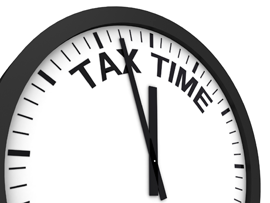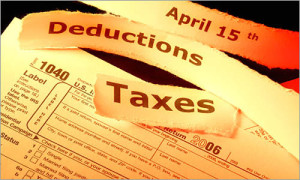 As a voice actor, I’m going to assume that you’re more of a creative type by nature. Makes sense. As a result of your creative nature, I’m also going to assume that you really don’t like doing bookwork. You likely avoid it like an audiobook project that pays $25. Can’t blame you for that.
As a voice actor, I’m going to assume that you’re more of a creative type by nature. Makes sense. As a result of your creative nature, I’m also going to assume that you really don’t like doing bookwork. You likely avoid it like an audiobook project that pays $25. Can’t blame you for that.
However, keeping books is part of the gig when you’re running your own business. Well, it is assuming you’d like to avoid criminal charges for tax evasion!
Pain In The Bookwork
For years I was the guy that was scrambling a week before the tax deadline trying to sort out my stuff. All my invoices were gathered in one spot. All of my expenses were gathered in another, sort of. But it was more of an organized chaos and certainly not accountant friendly. So I’d scramble. Sifting through receipts, cross-checking paid and outstanding accounts and trying to make sure I wasn’t forgetting any potential write-offs.
I hated my life during that time. I also knew there had to be a better way.
In 2012 I vowed that I’d find that better way. I promised myself that when tax season rolled around all I’d have to do is fire off one quick and simple email to my accountant. No stress. No hassle.
I succeeded! Here’s how I did it…
5 Accounting Tips
 1) Invoice Immediately: I used to be the guy that waited until a project was completed and approved before I’d send an invoice. This meant that on occasion, I might not invoice until two months after voicing! Do you know how hard it is to remember who has and hasn’t been invoiced when you run your business this way? It’s a nightmare!!!
1) Invoice Immediately: I used to be the guy that waited until a project was completed and approved before I’d send an invoice. This meant that on occasion, I might not invoice until two months after voicing! Do you know how hard it is to remember who has and hasn’t been invoiced when you run your business this way? It’s a nightmare!!!
I had clients who liked it better this way, but I didn’t. I’d lose track of invoices. I’d wait six months for payments. Sometimes I couldn’t even remember who had an hadn’t paid, because it had been so long since I completed the job. This is a great way to go out of business!
Rule 1: Invoice immediately. My new practice is to send an invoice in the same email as the finished audio I send.
2) Track Invoices: I have a spreadsheet with every single invoice on it that I’ve sent. In this spreadsheet I include the date the invoice was sent, the client, the job and the total amount. Outstanding invoices are marked in red. I add invoices to this sheet immediately when they are sent. Now I no longer have to try and remember who has been invoiced and who has paid. As soon as I receive a payment the invoice is marked clear in my spreadsheet.
At the end of the year, one quick formula in the spreadsheet totals my invoices for me. It takes about 5 seconds to do, and then I can send that spreadsheet to my accountant for my income.
Rule 2: Track invoices. Whether you use a spreadsheet system as I do or actual accounting software, track them from date to sent to date payment is received.
 3) Monthly Accounting: I work for myself and I work from home. That means I can claim a lot of my monthly expenses. A portion of my rent, hydro, cell phone, internet, etc. At tax time, I’d be sitting at the table sorting through and entering data from twelve months of bills. This was a big part of my nightmare.
3) Monthly Accounting: I work for myself and I work from home. That means I can claim a lot of my monthly expenses. A portion of my rent, hydro, cell phone, internet, etc. At tax time, I’d be sitting at the table sorting through and entering data from twelve months of bills. This was a big part of my nightmare.
To solve this problem, I now have a two hour block of time in my calendar once a month. I have these blocks scheduled for the entire year. I set reminders, and these blocks are non negotiable. In that time block I enter all of my bills into a spreadsheet. The fact of the matter is, this usually only takes me half an hour. The stress that it saves me come tax season is WELL worth the investment!
Rule 3: Create a time block to enter your monthly expenses on a monthly basis. Again, whether you use a spreadsheet or accounting software isn’t as important as simply taking the time to do it!
4) Expense Immediately: Did you buy a case of water for your studio? A new piece of equipment? Did you order new business cards? When you run your own business you’d be surprised at all the things you can write off. And if you’re not writing those things off you’re missing out.
Back to my tax season nightmare, I’d be pouring over boxes of receipts (and emails for digital purchases) trying to find all of my expenses. Once I found them (if I found them) I’d have to enter all of them into my expenses spreadsheet. This could take hours. Hours that could be spent doing more productive things… like recording voice overs!
My solution to this problem… as soon as I make a purchase I record it in my expenses spreadsheet immediately. I save the receipt for my records, but I record it immediately. This practice, which takes roughly 60 seconds at a time, can literally save you hours come tax season.
Rule 4: Record your expenses as soon as you make purchases and save all your receipts for your records. Keep digital receipts in a special folder in your email program. Keep hard copy receipts in a file folder.
 5) Have An Accountant: My accountant is amazing! AMAZING! The magic that he works with all of the numbers I give him blows my mind. Because I was organized this year, all I had to do was fire off an email with two spreadsheets. One for my income and one for my expenses. It was a great reward for a year of sticking to my commitment. That said, all of my effort would be for nothing without my amazing accountant.
5) Have An Accountant: My accountant is amazing! AMAZING! The magic that he works with all of the numbers I give him blows my mind. Because I was organized this year, all I had to do was fire off an email with two spreadsheets. One for my income and one for my expenses. It was a great reward for a year of sticking to my commitment. That said, all of my effort would be for nothing without my amazing accountant.
He doesn’t just crunch the numbers, he finds things. He’ll send me emails asking if I had this expense or that expense. If I made this donation or that donation. He is always looking out for me. He’s taught me so much about write-offs and good tax practices. He’s literally saved me thousands over the years.
Rule 5: Find a great accountant and your taxes will never have to stress you out again!
Get Organized
Taking some proactive measures throughout the year, and making a commitment to keep them will go a long way to improving your business. Thanks to my new practices I get paid faster, I chase fewer invoices, I have more write-offs, I pay less tax and I have no stress when tax season rolls around!
QUESTION: Have you got any accounting tips that have helped your voice over business?















